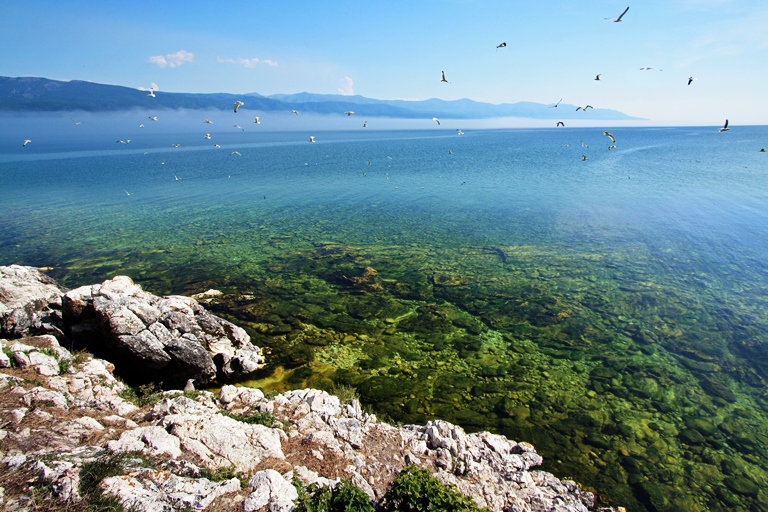On July 13 the Concept of Sustainable Waste Management of so in the Zabaikalsky National Park was presented by the expert group of the program «Trash Free National Parks» of Lake Baikal Foundation with the support of the Presidential Grants Foundation. Speakers of the webinar:
- Ekaterina Petrunina, Project Manager of Lake Baikal Foundation, curator of the program «Trash Free National Parks»;
- Alexander Filimonov, environmental engineer of the «Zapovednoe Podlemorye»;
- Olga Ulanova, PhD, head of the project expert group, international expert in waste management, Zurich, Switzerland;
- Alice Tulohonov, senior environmental engineer, expert of the project, Bratsk;
- Natalia Alberg, PhD, project expert, East Siberian State University of Technology and Management, Ulan-Ude;
- Alexander Kuklin, environmental engineer, project expert, Irkutsk.
During the webinar, we received important and interesting questions from the audience, the answers to which can be useful for organizations implementing the principles of sustainable waste management on their territory. Below there are some of the topics that were raised during the event:
- It is not profitable for national parks and regional operators to maintain a system of separate waste collection due to the remoteness of territories and small volumes of accumulated recyclables. How can we implement sustainable waste management principles in such conditions?
Indeed, the peculiarity of protected areas is that they are far from administrative centers where there are collectors and processors of recyclable materials, as well as from licensed landfills for disposal of residual solid municipal waste. However, this does not mean that the introduction of separate waste collection and other practices is not possible there. An ideal option for a protected area is a situation when all visitors take absolutely all the waste with them. But even with proper education it will take years to fix such a system. During this time it is important to move towards the goal of «Zero waste» through the implementation of separate waste collection and comprehensive information. It is important to draw the attention of the state and business to these difficulties and make the sphere of waste management in protected areas subsidized. A good option may be direct cooperation between protected areas and companies that procure or process recyclable materials (see the database of such enterprises in the Baikal region, developed by Lake Baikal Foundation in 2020). As for the export of mixed solid municipal waste, at the moment this is a direct responsibility of regional operators serving the territories of the Russian Federation and according to the legislation it should be implemented even in remote territories.
- What is the study of waste morphology in the national park?
The purpose of the morphological study is to determine the composition of solid municipal waste based on the stratification approach: the key places of waste formation and accumulation in the territory are determined, solid municipal waste is manually sorted into more than 10 fractions and the composition of waste is determined as a percentage. The results of this research are important for selecting the elements of the separate waste collection system infrastructure and for a well-informed dialogue with partner organizations.
- How does the Concept reflect sustainable food waste management schemes?
Section 2.3.3.1 of the Concept is devoted to the management of food waste (pages 42-45). Priority is given to organizing individual composting in households located directly in protected areas and in adjacent territories. Despite the fact that organic waste in protected areas is the most common fraction (in Zabaikalsky national park it makes up 29% of all waste), at the moment, industrial (large-scale) composting in protected areas is legally prohibited. As part of the work with the expert group, the Foundation is preparing a justification and proposal for reviewing legal barriers to composting in protected areas.
- How is the allocation of recyclable materials that will go for processing from containers for separate waste collection taking into account the fact that there is a lot of other waste?
The system of separate waste collection in Zabaikalsky national park is designed to minimize the number of erroneous throws into separate waste collection containers. Employees and volunteers of the national park are engaged in the allocation of foreign fractions that are still found there in the economic zone of the protected areas during the summer season, while separate waste collection points are functioning.
- What should be considered when applying calculation formulas to other protected areas?
First of all you should carefully check the current values of the standards for accumulation of solid municipal waste for various types of organizations in your region. Legislation in this area is changing quite quickly,and it is important to use up-to-date data for correct calculations.
The first version of the concept is available via the link. At the moment the document is undergoing final approval with the Directorate of Zabaikalsky national park. We are ready to consider expert proposals and questions from other protected areas, public authorities and business companies in the field of waste management.
It is important that the algorithms of this Concept can be replicated and applied in various protected areas. For a quick guide on how to do this, see section 3.3 of the Concept (pages 64-66).
We thank all speakers and listeners for participating in the webinar, as well as the Agency for strategic initiatives for providing an online platform for the event.
Photo: Zapovednoe Podlemorye


